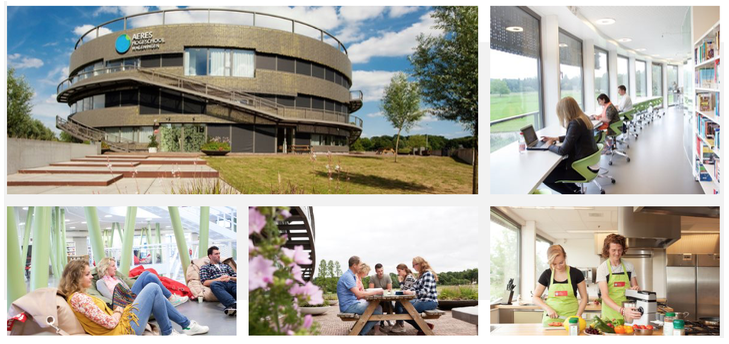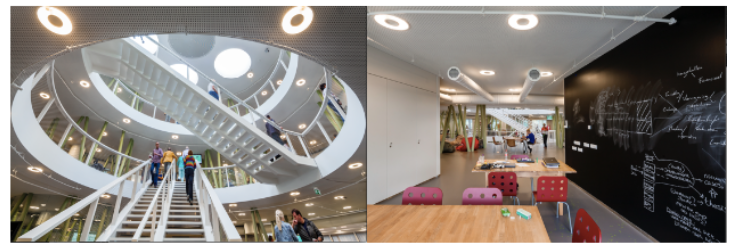.
Aeres University Wageningen is the educational faculty (teacher Education) of Aeres Applied University with other faculties in the cities Dronten and Almere.

Education in Wageningen: improve your learnability
Make use of the best of professional potential, knowledge and skills. That is the focus of Aeres University of Applied Sciences Wageningen. Our aim is to improve the learnability of people and organizations. From professional development to professional practice. Inspired by Nature.
The study programmes at Aeres University of Applied Sciences in Wageningen focus on teachers, trainers and specialists in learning. The programmes are all in Dutch and train students in becoming professionals in the transfer of knowledge in the field of agriculture (agribusiness), horticulture (floral design and retail, landscaping and gardening), food technology, animal breeding and keeping, cooking, catering & hospitality.

Workplace learning
Based on the educational concept Aeres University of Applied Sciences Wageningen, practising and learning in the reality of the professions (workplace learning) is very important. Read more about workplace learning and how you can offer a work placement for our students.
Read more about the structure of the programmes at Aeres University of Applied Sciences in Wageningen.
Research in Wageningen: Wisdom
The research in Wageningen centres around the optimal design for talent in professional education and in society. We focus on (future) professionals who are capable of excelling in their professional environment. Wisdom is the collective focus. We wish to understand what being wise means, how wisdom develops and how you can support its development.
European Floral Design Academy
Aeres University of Applied Sciences in Wageningen is home to the European Floral Design Academy (EFDA). The core business of EFDA consists of varied professional training courses in floral design on different levels all over the world. Read more about EFDA.

Professorships
- Learning biomimicry from Nature to create sustainable solutions
- Boundary crossing practices of teachers and researchers
- Knowledge creation and ecologically intelligent thinking
- Professional identity and development of organizations